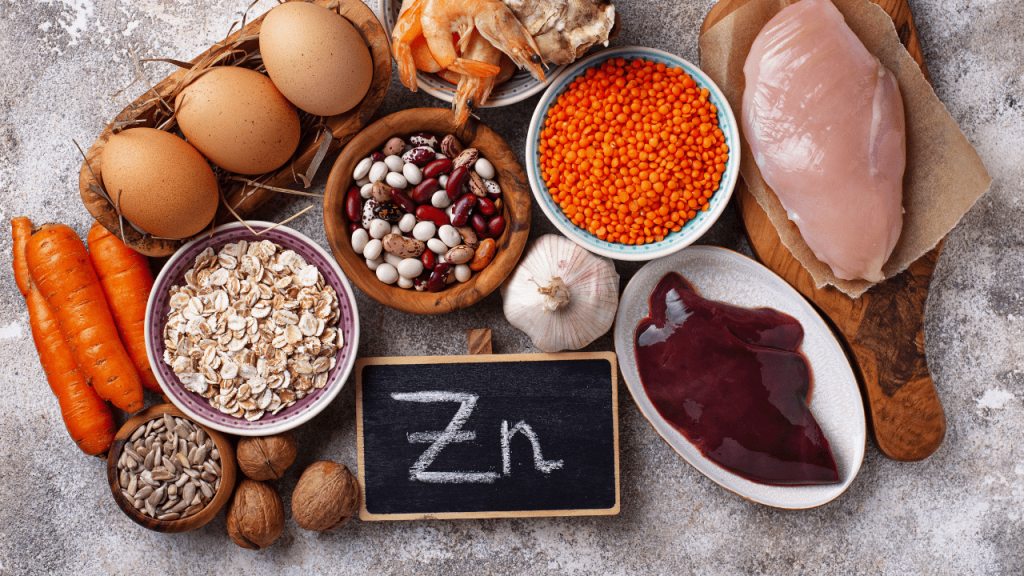Zinc, an often-overlooked mineral, is essential for various bodily functions. When you’re deficient in zinc, it can lead to a range of subtle symptoms that can affect your health and well-being.
Let’s look at the 6 subtle signs that may indicate a potential zinc deficiency:
1. You’re losing hair
Zinc is essential for cell growth, including the growth of your hair follicles. When zinc levels are low, you may notice that your hair stops growing and strands weaken, leading to hair loss. Research indicates that zinc deficiency disrupts the hair growth cycle, increasing the likelihood of shedding and bald spots.
2. You’re battling mental fog
Wading through mental fog, and not feeling as focused? Zinc deficiency might be the culprit. Zinc plays an important part in cognitive function, so insufficient levels may dim mental clarity, which leads to sluggishness and mental fatigue.
3. Your taste and smell are off
Zinc deficiency may even impact one’s sensory experiences, as it is intricately involved in the functioning of taste and smell receptors. When you’re battling a zinc deficiency, these senses may be a little ‘off.’
Read more: Constipated? Try these foods to help!
4. You’ve got slow-healing wounds
The body’s ability to heal itself hinges on various cellular processes, and zinc plays a starring role. When zinc levels are low, the healing process hits a roadblock. This can lead to delayed healing of wounds and impaired tissue regeneration.
5. You’re struggling with digestive issues
The gut, often dubbed the ‘second brain’, serves as a barometer of our overall health. Zinc deficiency can disrupt the delicate balance of the digestive system. Studies have indicated zinc’s role in maintaining gut health and modulating immune responses within the gastrointestinal tract. If you’ve got ongoing tummy issues, this may be why.
6. You’ve got skin problems
Our skin and nails can often bear the brunt of zinc deficiency. From dermatitis to white marks on nails, zinc deficiency can manifest as skin changes that are similar to eczema. Indicators may include a cracked and a ‘glazed’ (smooth or glassy) appearance on the skin – especially the mouth and hands.
If you are experiencing one or more of these symptoms, book an appointment with your GP to determine whether you are battling a zinc deficiency. If you are, an oral supplement will be prescribed to you.
ALSO SEE: Foods to avoid if you have IBS
Compiled by: Savanna Douglas for Woman&Home Magazine
Feature image: The LEPIVITS laboratory

